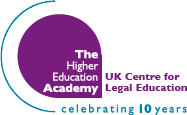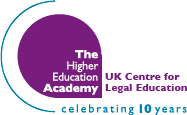Increasing potential for success in legal practice -some empirically derived insights from new lawyers

contributors | abstract | presentation | biographies
Contributors
Tony Foley, Vivien Holmes, Margie Rowe and Stephen Tang (Australian National University)
Format
Paper presentation
Abstract
This paper reports on a pilot research project currently underway in an Australian jurisdiction. The study provides empirically-based insights into the lived experience of a group of lawyers in their first year of practice. What these lawyers report about how a successful transition can occur provides fresh insights into the legal education experiences needed to prepare law students for practice.
The research highlights three distinct factors that have helped or hindered their transition:
- Finding the right balance between autonomy and close mentoring and supervision, and in particular having exposure to ‘dramatic learning events’
- Recognising that legal practice is not just a rational and rule-based activity, but one that involves persistent uncertainty about their role as lawyer, their knowledge of the law and their ability to handle the inherent emotionality of practice; and
- Finding a comfortable value accommodation between their own values and those modelled and practised by colleagues in their practice.
The Carnegie Report includes this preparation as part of the core tasks of law school. Law schools must be engaged in the formation of ‘legal professionals who are both competent and responsible to clients’, who are able ‘to make judgements under conditions of uncertainty’ and whose identity is guided by principles of professionalism. The paper argues that legal education programs tailored to meet these practice needs can significantly improve student engagement.
Presentation
Short biographies of panel members
Tony Foley is currently Associate Director, Research in the ANU College of Law, Canberra Australia.
Tony practiced law in general practice in Australia between 1982 and 1998, principally in criminal and environmental law. During that period he was a partner and consultant to a number of regional law firms. In 1999 he ceased full time practice. He continues to hold a practicing certificate and appears regularly in courts representing legally aided clients.
Tony was awarded his PhD in 2010 for his dissertation ‘Asking the Restorative Question in Response to Criminal Wrongdoing – Widening the Scope for Legal and Restorative Integration’.
Vivien Holmes is a Senior Lecturer in the ANU College of Law and teaches Legal Ethics in the College’s Graduate Diploma of Legal Practice Program. Prior to joining academe in 2004, Vivien worked in private and government practice, government policy work, as a court registrar, deputy coroner and on the Social Security Appeals Tribunal. Vivien’s main areas of academic/research interest are legal ethics and the legal profession.
Margie Rowe has been a lecturer at the ANU Legal Workshop since 2002 and sub-Dean of the Practical Legal Training program since 2007. Whilst at Legal Workshop Margie has been involved in several clinical training programs and in the design and implementation of online simulated learning environments. Prior to joining Legal Workshop Margie was a legal practitioner for many years, primarily in family law. Margie has been a long term Board Member of the ACT & Region Women’s Legal Centre, assists the Centre to manage their legal practice and undertakes pro bono work at the Centre. Margie is a past Chair of the ACT Government’s Domestic Violence Prevention Council..
Last Modified: 21 February 2011



Comments
There are no comments at this time